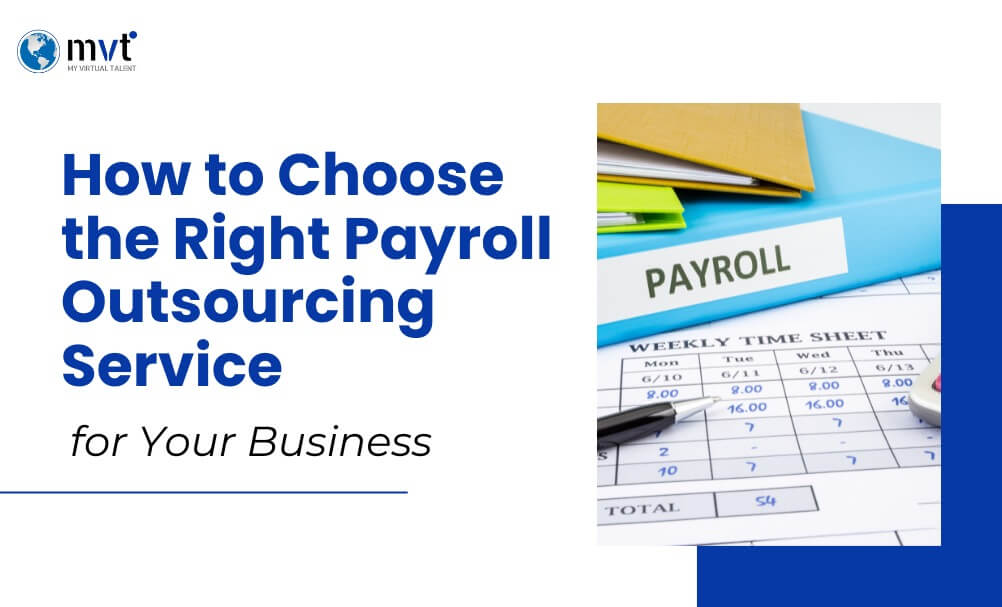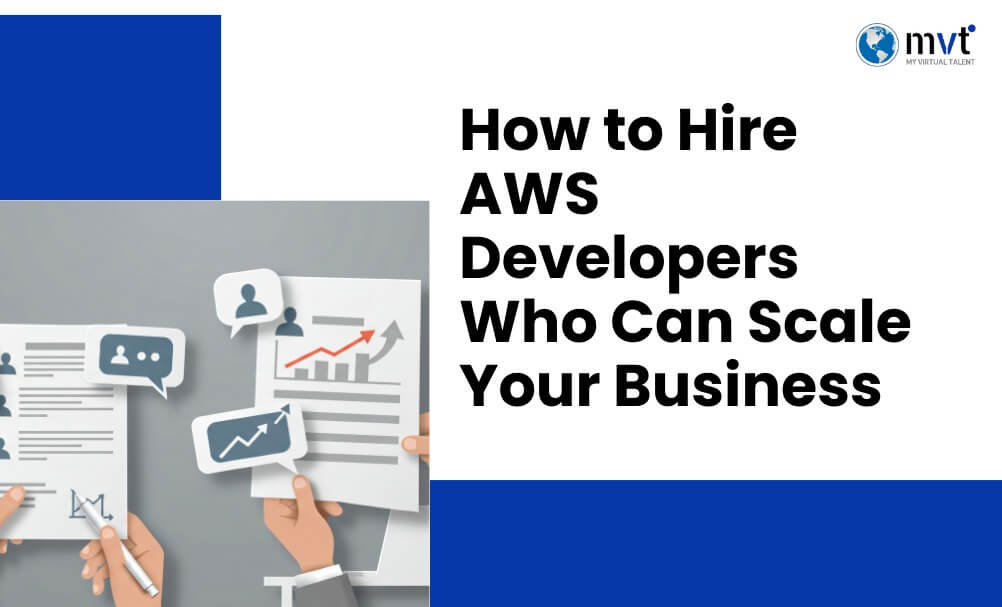
Managing payroll is one of the hardest tasks for business owners. You have to calculate employee pay, withhold the right amount of taxes, and follow changing laws. If even one mistake happens, it can lead to big fines or upset employees. For small businesses, this is even harder because they may not have a full HR team.
This is where a payroll outsourcing service helps. These are companies that take care of all payroll work for you calculating salaries, handling taxes, and filing reports. They help you save time, avoid errors, and follow all rules.
But there are so many payroll outsourcing services available that choosing the right one can feel confusing. Some offer full services, others only cover a few tasks. If you pick the wrong one, you could face hidden fees, poor support, or important tasks being missed.
This guide will make things easy for you. You’ll learn what features matter most, how to compare providers, and what mistakes to avoid. That way, you can pick the best payroll outsourcing service for your business and focus more on growth, not paperwork.
Why Should You Outsource Your Payroll?
Using a payroll outsourcing service helps your business in many ways. First, it saves a lot of time. Most companies get back 5 to 10 hours every pay cycle that they used to spend doing payroll. This extra time can now be used to grow the business.
Second, it reduces mistakes. Payroll providers use software that does automatic calculations and keeps up with tax laws. This means fewer errors many businesses see 80% to 90% fewer payroll mistakes.
Surprisingly, it also saves money. Business owners often think outsourcing costs more, but that’s not true. A payroll outsourcing service can save you 20% to 40% by cutting software fees, training costs, and time spent fixing errors.
One big benefit is compliance. Tax rules change often. If you don’t follow them, you can get fined. Payroll companies stay up to date and take responsibility for mistakes, giving you peace of mind.
Lastly, security is stronger. These services use safe systems, strong passwords, backups, and secure data centers to protect your employee information better than most small businesses can do on their own.
Types of Payroll Outsourcing Services
Understanding service categories helps narrow your selection to providers that match your specific requirements. Three primary models dominate the market, each serving different business needs and budgets.
Full-Service Payroll Providers
A payroll outsourcing service that offers full-service support takes care of everything related to payroll. This includes calculating wages, handling taxes, sending direct deposits, filing reports, and even preparing year-end tax forms like W-2s.
Big companies like ADP, Paychex, and Gusto offer this kind of all-in-one service. They also help with HR tasks and employee benefits, all from one easy-to-use platform.
With full-service payroll providers, new employees are reported automatically, and workers can use online portals to check their pay and tax details.
This type of payroll outsourcing service is perfect for busy businesses that want to save time and avoid payroll headaches. It keeps things smooth, accurate, and stress-free.
Partial Outsourcing Solutions
A payroll outsourcing service doesn’t always have to handle everything. With partial outsourcing, a business can keep control of some payroll tasks and let an outside company take care of the rest.
For example, your team might still manage employee hours and pay, while the provider handles tax filing and compliance. This way, you reduce stress and avoid penalties, but still stay involved.
This option works well for businesses that already have some payroll knowledge but want help with tricky parts like taxes. It also costs less than full-service plans.
Partial payroll outsourcing service lets you save time and reduce errors while keeping control where you need it most.
Industry-Specialized Providers
Some industries have special payroll rules. For example, construction companies need certified reports for government jobs. Healthcare businesses deal with complex benefits and union pay rates.
In these cases, it’s best to use an industry-specialized payroll outsourcing service. These providers know the exact rules for your type of business and help you stay fully compliant.
They may cost more than general payroll companies, but their expert knowledge can save you from big mistakes and penalties. If your industry has special payroll needs, choosing a provider with the right experience is a smart move.
Using a trusted payroll outsourcing service built for your industry helps you stay safe and stress-free.
Key Criteria for Choosing the Right Payroll Outsourcing Service
Understanding Your Business Needs
Before choosing a payroll outsourcing service, you must understand your own business needs. Start by writing down how many employees you have, how often you pay them, and if you have any special needs like paying commissions or managing staff in different places.
Think about your future growth. A provider that works for 20 employees may not be good when you grow to 100. Also, if you plan to work in different states, pick a service that can handle multi-state taxes.
If you use tools like QuickBooks or time trackers, make sure the payroll outsourcing service connects easily with them. It saves you trouble later and keeps your payroll smooth and simple.
Evaluating Industry Expertise
Not all businesses have the same payroll needs. A restaurant has different payroll rules than a construction company or a doctor’s office. That’s why it’s important to choose a payroll outsourcing service with experience in your industry.
Ask the provider if they’ve worked with businesses like yours. Request examples or speak with their clients in your field. A good provider will understand your industry’s special rules and challenges.
Also, make sure they know your local laws. If you work in more than one state, they should be familiar with tax rules in each state. Even if you operate in just one area, having a provider who understands local payroll laws can help you avoid mistakes and save money.
Assessing Features and Functionality
When choosing a Payroll outsourcing service, start with the basics. Make sure they offer accurate pay calculations, automatic tax deductions, direct deposit, and simple reports. Without these, other features won’t matter.
Next, look for an employee self-service portal. These portals let employees check pay stubs, download tax forms, and update personal info saving your team time.
Advanced features can help as your business grows. Look for custom reports that track labor costs by project or team. Alerts about tax law changes are helpful too.
Also, check if the service connects with your time-tracking system to avoid extra work. Finally, mobile access is a must today employees and managers both need payroll tools that work on the go.
Pricing Models
When using a Payroll outsourcing service, most companies charge a monthly base fee plus a small amount for each employee. Base fees are usually between $20–$50, and per-employee charges range from $2–$15.
Some services offer flat-fee pricing. This works best for businesses with steady staff sizes and complex payroll needs but might be costly for small teams.
Watch out for hidden fees like setup costs, tax filing charges, and extra fees for year-end reports or added features. Always ask for a full fee list before choosing a provider.
Large companies might get volume discounts, especially those with 50+ employees. Small businesses should focus on affordable base pricing and clear terms to avoid surprises.
Security and Data Protection
Payroll data represents some of your most sensitive business information, including Social Security numbers, bank account details, and salary information. Providers must demonstrate robust security measures protecting this data throughout processing and storage.
Look for providers offering bank-level encryption for data transmission and storage. Advanced security features should include multi-factor authentication, regular security audits, and comprehensive employee background checks.
Compliance with privacy regulations like GDPR or CCPA becomes increasingly important as these laws expand. Providers should clearly articulate their compliance measures and data handling procedures.
Disaster recovery capabilities ensure payroll processing continues even during system failures or natural disasters. Ask about backup systems, data recovery timeframes, and alternative processing procedures during emergencies.
How to Compare Payroll Outsourcing Services
Choosing the right Payroll outsourcing service takes careful planning. Start by listing the things that matter most to your business, like cost, features, or support.
Read reviews online, especially from businesses like yours. Check rankings in trusted business magazines too.
Shortlist three to five companies. Ask for demos and share examples of your payroll needs. Good companies will show how they handle your real issues.
Make a simple chart to compare prices, features, and service quality side by side.
Ask for client references, and also talk to business owners you know for honest opinions.
If possible, try a short trial. Some services let you run payroll once or twice to see how well they work for you.
Mistakes to Avoid When Choosing a Payroll Provider
Price-focused selection represents the most common mistake in provider selection. While cost matters, the cheapest option often lacks essential features or provides inadequate support. Focus on value rather than lowest price.
Overlooking scalability can force expensive provider changes as businesses grow. Choose providers capable of supporting your projected growth for at least three to five years. Switching providers requires significant time investment and potential data migration challenges.
Inadequate customer support evaluation can create ongoing frustrations. Test support responsiveness during the selection process by asking detailed questions and noting response times and quality. Poor support during evaluation often predicts poor ongoing service.
Ignoring implementation timelines can disrupt payroll processing. Allow adequate time for setup, testing, and staff training. Rush implementations increase error risks and employee frustration.
Failing to read contracts thoroughly can result in unexpected limitations or fees. Pay particular attention to termination clauses, data ownership provisions, and service level guarantees. Consider legal review for complex agreements.
Frequently Asked Questions
1. What’s the difference between payroll software and payroll outsourcing services?
Payroll software means your team does all the work entering data, making calculations, and handling tax rules. A Payroll outsourcing service, on the other hand, does most of this for you. You just give them the employee info, and they take care of the rest. It’s easier and safer, especially for avoiding tax mistakes.
2. How long does it take to switch to a payroll outsourcing provider?
Usually, it takes 2 to 6 weeks. If your payroll setup is simple, it can be done in about 2-3 weeks. More complex setups like having multiple locations or lots of benefits may take up to 6 weeks. Switching at year-end may take longer.
3. Can a payroll outsourcing service handle employees in different states?
Yes! Most good providers handle multi-state payroll. Still, double-check that your provider knows the rules in all the states where you do business.
4. What if the payroll provider makes a mistake?
Top providers have insurance and will fix the problem quickly. They should also help communicate with your employees if needed. Make sure to read their service agreement to understand what’s covered.
How secure is outsourced payroll processing?
Professional payroll providers typically offer superior security compared to internal processing, investing in advanced encryption, secure data centers, and comprehensive backup systems. However, security levels vary between providers, making security evaluation essential during selection.
Final Thoughts
Choosing the right Payroll outsourcing service can make payroll easy, accurate, and stress-free. It helps your business save time, avoid costly mistakes, and stay on top of tax rules. When done right, it also makes your employees happier because everything runs smoothly.
But don’t rush. Think about what your business really needs. Compare a few good providers, not just the cheapest one. Look for a service that understands your industry and can grow with your team. The right choice will help you for years, while the wrong one can cause delays, errors, and surprise costs.
Start by writing down your current payroll challenges. Then reach out to a few providers and ask smart questions.
Need help getting started? Contact MyVirtualTalent for a free consultation. Our team will guide you in finding a Payroll outsourcing service that fits your business perfectly.
Looking for fresh content?
Get articles and insights from our weekly newsletter.
Recent Posts
Reduce Your Marketing Spend By 70% And Grow Your Revenue Organically 10X Faster!
Get a Free Quote Today!










